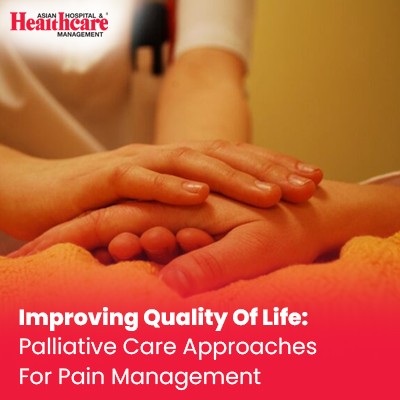Palliative care focuses on improving the quality of life for patients with serious illnesses through holistic pain management. This includes pharmacological interventions, non-pharmacological therapies, patient-centered care, and shared decision-making. Innovations in technology and research continue to enhance pain relief strategies, ensuring comfort and dignity for patients and their families.

Introduction to Palliative Care and Pain Management
Palliative care is a specialized medical approach focused on improving the quality of life for patients facing serious illnesses. It is not just about end-of-life care; rather, it aims to provide relief from the symptoms, pain, and stress that often accompany such conditions. One of the key aspects of palliative care is effective pain management, which plays a crucial role in enhancing the patient's overall well-being and comfort.
Understanding Pain in Palliative Care
Pain is a common and distressing symptom experienced by many patients with serious illnesses such as cancer, heart disease, neurological disorders, and chronic conditions like arthritis. It can be physical, emotional, or existential, impacting various aspects of a person's life. In palliative care, the goal is not just to eliminate pain entirely but to manage it effectively so that the patient can maintain a good quality of life.
Multidisciplinary Approach to Pain Management
Palliative care teams typically consist of healthcare professionals from various disciplines, including doctors, nurses, pharmacists, psychologists, social workers, and spiritual counselors. This multidisciplinary approach ensures that pain management strategies are comprehensive and holistic, addressing not only the physical aspects of pain but also the emotional, social, and spiritual dimensions.
Assessment and Evaluation of Pain
The first step in effective pain management is a thorough assessment and evaluation of the patient's pain. Healthcare professionals use validated tools and scales to assess the intensity, location, quality, and impact of pain on the patient's daily life. This information helps in developing personalized pain management plans tailored to the individual's needs and preferences.
Pharmacological Interventions
Medications play a vital role in managing pain in palliative care. Different types of pain require different medications, and the choice of drug depends on factors such as the nature and severity of pain, the patient's medical history, and any existing treatment plans. Commonly used medications for pain management include:
Non-Pharmacological Approaches
In addition to medications, palliative care emphasizes non-pharmacological approaches to pain management, which can be used alone or in combination with drugs. These approaches include:
Patient-Centered Care and Shared Decision-Making
A fundamental principle of palliative care is patient-centered care, which prioritizes the patient's preferences, values, and goals. Shared decision-making involves open communication between healthcare providers, patients, and their families to discuss treatment options, risks, benefits, and possible outcomes. This collaborative approach ensures that pain management plans are aligned with the patient's wishes and priorities.
End-of-Life Care and Pain Management
In cases where patients are approaching the end of life, palliative care extends its focus to end-of-life care, also known as hospice care. The goal shifts from active treatment to comfort and dignity, with an emphasis on pain management, symptom control, emotional support, and assistance with personal care. Hospice care aims to ensure a peaceful and dignified end-of-life experience for patients and their loved ones.
Challenges and Ethical Considerations
Palliative care and pain management face several challenges and ethical considerations. These include balancing pain relief with the risk of opioid misuse, addressing cultural and spiritual beliefs regarding pain and suffering, respecting patient autonomy and decision-making capacity, and navigating complex legal and regulatory frameworks related to end-of-life care.
Future Directions and Innovations
Advances in medical technology, pharmacology, and palliative care research continue to drive innovations in pain management for patients with serious illnesses. These include targeted drug therapies, personalized pain management algorithms, telemedicine for remote consultations and support, and integration of artificial intelligence (AI) and machine learning (ML) algorithms for predictive analytics and decision support.
Conclusion:
Palliative care plays a crucial role in improving the quality of life for patients with serious illnesses through comprehensive pain management approaches. By combining pharmacological interventions, non-pharmacological therapies, patient-centered care, and innovative strategies, palliative care teams strive to alleviate suffering, enhance comfort, and promote dignity for patients and their families throughout their healthcare journey.